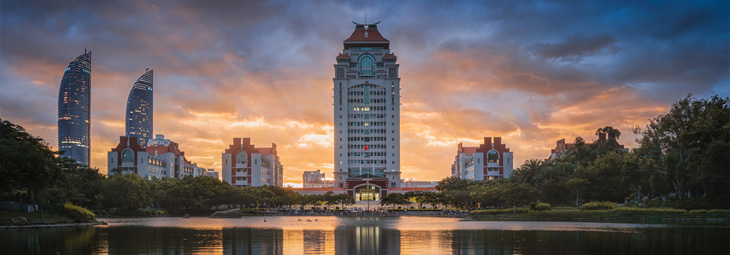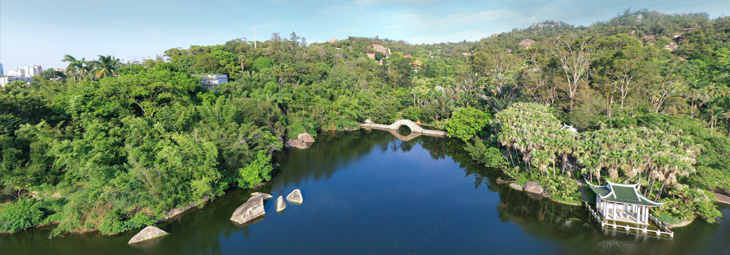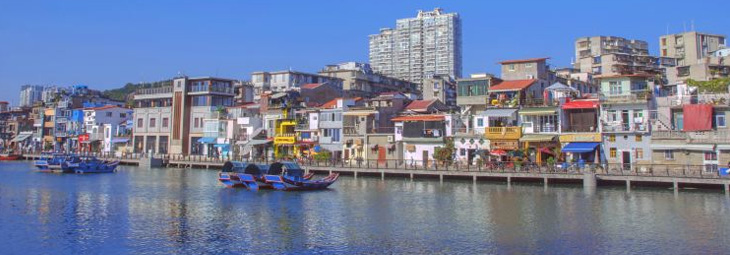Conference participants who bear a foreign passport may need to apply for a Chinese visa to visit China. Participants can apply for a visa at the Chinese embassy or consulate in the region where they live. To avoid any uncertainty, participants are advised to apply for the visa as early as possible, at least one month in advance.
For most attendees, it is easier to apply for a Tourist ("L") visa.
* For more information, please contact the local Chinese Embassy in your country.
The 240-hour visa-free transit is one of China’s visa exemption policies provided to eligible foreigners coming from selected countries.
Under the 240-hour visa-free transit policy, foreign travelers can enjoy a ten-day stay in certain Chinese cities without a visa, provided they come from 55 eligible countries, enter and exit China from eligible ports, stay within the allowed cities and regions, as well as satisfy other requirements.
The applicant must be a citizen of one of the following 55 countries that are eligible for the visa-free transit policy:
To know more details, please visit: https://en.nia.gov.cn/n147413/c183100/content.html
Xiamen (厦门) is an important gateway city on the southeast coast of China, renowned as a "Garden on the Sea." It is one of the core areas of Minnan (Southern Fujian) culture and served as a vital hub of the ancient Maritime Silk Road, witnessing China's modern journey of openness and integration. Famous for its unique layout of city and sea—"a city on the sea, and the sea in the city". Xiamen combines the charm of overseas Chinese heritage, exotic architecture, and coastal scenery, which has attracted countless tourists.
Here is the tourism route:
Xiamen University (厦门大学) --- Xiamen Botanical Garden (厦门园林植物园) --- Shapowei (沙坡尾)
Xiamen University (厦门大学)
Xiamen University, located between Wulao Peak and the sea in southeastern Xiamen, is often hailed as "China’s most beautiful university." Founded in 1921 by philanthropist Tan Kah Kee, the campus is famous for its distinctive Jiageng-style architecture, which blends Minnan (Southern Fujian) and Western elements. With a rich academic heritage shaped by scholars like Lu Xun and Lin Yutang, Xiamen University stands today as both a leading institution of higher education and a cultural landmark of the city.

Figure 1: Xiamen University (厦门大学)
Xiamen Botanical Garden (厦门园林植物园)
Xiamen Botanical Garden is a national botanical garden combining plant research, education, and tourism. Covering an area of approximately 4.93 square kilometers, it houses over 7,000 tropical and subtropical plant species. The garden features two signature attractions: the Desert Plant Zone, showcasing a striking variety of cacti and succulents that create a landscape reminiscent of the desert, and the Rainforest World, where an artificial mist system evokes the enchanting atmosphere of a tropical jungle. Established in 1960, the garden harmonizes natural mountain and water scenery with artistic landscaping, earning it the title of a "green jewel within the city."

Figure 2: Xiamen Botanical Garden (厦门园林植物园)
Shapowei (沙坡尾)
Shapowei, on the southwestern coast of Xiamen Island near Xiamen University, is the birthplace of the city’s port culture. Once a Ming Dynasty-era typhoon shelter and Xiamen’s only fishing harbor, it has transformed into a vibrant cultural district. Traditional Minnan Qi Lou buildings now coexist with art spaces, independent cafes, and old workshops. Blending vintage charm with youthful creativity, Shapowei retains its authentic local spirit while embracing modern trends, serving as a unique cultural window connecting Xiamen’s past and present.

Figure 3: Shapowei (沙坡尾)

conference123 is an international academic communication platform, that facilitates high-level symposiums and fostering innovation. It serves as a platform for academic conferences, bringing together experts and scholars worldwide to exchange research findings.
Participation Guidelines
Contact Us
Email: contact@conference123.net
Cell Phone: 0086-18616502321
0086-18621626037
|
Address: |
11th Floor, Block B, Pinzun International Center, No. 567, Langao Road, Putuo District, Shanghai |

沪公网安备 31010702005022号